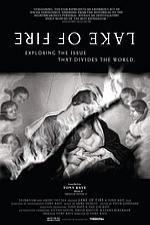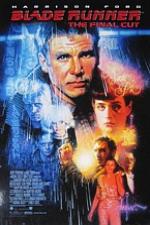
Knight at the Movies Archives
Tony Kaye's 16 years in the making documentary of the war over abortion is riveting, disturbing, and unforgettable and a flawed
masterpiece returns
masterpiece returns
Director Tony Kaye has not released a movie since 1998’s American History X which starred Edward Norton as a neo-Nazi and was the
subject of an intense creative battle between Kaye, Norton and the studio releasing the film. The battles became so vitriolic that
Kaye, who was directing his first feature, sued the studio and suggested his name be taken off the picture and replaced with a
directing credit for “Humpty Dumpty” (the studio left Kaye’s name on the picture). The ensuing legal skirmish killed whatever chance
the director had in getting another movie made in Hollywood and left him bankrupt.
Clearly, Kaye is not one to shy away from controversy and with Lake of Fire, his self-financed, 2 ½ hour documentary on the
ongoing battle over abortion rights in this country, he reaffirms this. The movie is tough going, extremely graphic, and never boring
(there’s not a wasted shot). Though it seems lopsided toward the religious zealots that’s clearly because the much more dramatic
pro-lifers are better camera subjects than their cool headed counterparts and Kaye, who doesn’t comment or offer narration
throughout the sprawling film, doesn’t offer a viewpoint. Indeed, supporters on both sides of the issue will find moments here to
shake their beliefs. This tremendous but disturbing film is in the midst of an exclusive run at Chicago's Gene Siskel Film Center.
“Lake of Fire” refers to that place in Hell where the religious fundamentalists profiled in the movie insist will be the eventual home
for those involved in the abortion “trade,” sodomites and anyone, it seems, who does not hew to their narrow belief system. Kaye
spent over 16 years working on his film and during that time period caught plenty of amazing and ironic footage. In one horrifying
moment, Paul Hill is shown decrying the guilty verdict after a fellow pro life fanatic is convicted for murdering a doctor who performs
abortion. When a cameraman asks him, “So can we expect to see you on trial for murder soon?” Hill merely cracks a half smile and
indeed, a year and a half later Hill was tried (and later executed) for doing just that.
In another extraordinary, ironic section of the film, Norma McCorvey, the “Roe” in Roe v. Wade is shown to not only have converted
to pro life beliefs but is seen as an employee of an evangelical, right to life group notorious for its pressure tactics on its foes. A lot
of time is given over to the men of “God’s Army” (Pat Robertson, et al) screaming and screaming about the insidiousness of
abortion, homos, etc. (the usual suspects) to the point where by the time a man with a sign at a protest yells back during a clinic
demonstration, “Help save American from Christian terrorists” I thought, “Amen.” Whether you agree with these conservative
viewpoints or not, the relentless sanctimonious, overwhelming humorlessness of these Fundamentalists is a drag on the soul. Kaye’
s movie does present calm commentators from the pro-choice side (attorney Alan Dershowitz and philosopher Noam Chomsky
among them), and an impassioned Jocelyn Elders.
The film as noted also includes graphic footage of abortions and their aftermaths along with the infamous early 1960s photograph of
the woman found dead in a motel room after a failed abortion. It is only possible to view these sections because of Kaye’s decision
to shoot the film in black and white which offers a distance that color would not afford. But they’re still pretty tough to watch. It’s
toughest, however, to watch the emotionally wrenching sequence which ends the film in which Kaye follows a young woman through
her entire visit to a clinic to have an abortion. The young woman’s unblemished reaction throughout and later as she wipes away the
tears with an apologetic, “It’s just been a very long day” speaks volumes about the difficulties inherent in such a decision and puts a
face on this highly personal issue. www.siskelfilmcenter.com
+++++++++++++++++++++++++++++++++++++++++++++++++++++++++++++++++++++++++++++++++++++++++++++
Ridley Scott’s 1982 sci-fi masterpiece Blade Runner returns to theatres in an extended director’s cut 25 years after its debut titled
Blade Runner: The Final Cut. The film, set in the toxic wasteland of looming skyscrapers and endless rain that Los Angeles
has become by 2019, looked like nothing else when it debuted in 1982. The movie, which stars Harrison Ford as a hired gun (called
a blade runner) tracking down killer robots (known as replicants) was a flop with the public and had a mixed critical reception in its
initial release but Scott’s visionary movie has influenced scores of films since. Blade Runner, with its dreamy, wistful Vangelis score
and eye popping visuals and technical prowess, almost immediately took on mythic proportions. Though a previous director’s cut
was released in 1992 that removed Ford’s film noir like voice over narration and had other small changes, Scott has announced that
this new version which includes never before seen material, at last contains his final vision for the film. Though a multi-set DVD
release is forthcoming, this is a rare chance to see this visual masterpiece in all its glory on the large screen. Opens exclusively at
Chicago's Music Box Theatre on November 2. I missed the critic's screening but won't miss the run - don't you either!
www.musicboxtheatre.com
subject of an intense creative battle between Kaye, Norton and the studio releasing the film. The battles became so vitriolic that
Kaye, who was directing his first feature, sued the studio and suggested his name be taken off the picture and replaced with a
directing credit for “Humpty Dumpty” (the studio left Kaye’s name on the picture). The ensuing legal skirmish killed whatever chance
the director had in getting another movie made in Hollywood and left him bankrupt.
Clearly, Kaye is not one to shy away from controversy and with Lake of Fire, his self-financed, 2 ½ hour documentary on the
ongoing battle over abortion rights in this country, he reaffirms this. The movie is tough going, extremely graphic, and never boring
(there’s not a wasted shot). Though it seems lopsided toward the religious zealots that’s clearly because the much more dramatic
pro-lifers are better camera subjects than their cool headed counterparts and Kaye, who doesn’t comment or offer narration
throughout the sprawling film, doesn’t offer a viewpoint. Indeed, supporters on both sides of the issue will find moments here to
shake their beliefs. This tremendous but disturbing film is in the midst of an exclusive run at Chicago's Gene Siskel Film Center.
“Lake of Fire” refers to that place in Hell where the religious fundamentalists profiled in the movie insist will be the eventual home
for those involved in the abortion “trade,” sodomites and anyone, it seems, who does not hew to their narrow belief system. Kaye
spent over 16 years working on his film and during that time period caught plenty of amazing and ironic footage. In one horrifying
moment, Paul Hill is shown decrying the guilty verdict after a fellow pro life fanatic is convicted for murdering a doctor who performs
abortion. When a cameraman asks him, “So can we expect to see you on trial for murder soon?” Hill merely cracks a half smile and
indeed, a year and a half later Hill was tried (and later executed) for doing just that.
In another extraordinary, ironic section of the film, Norma McCorvey, the “Roe” in Roe v. Wade is shown to not only have converted
to pro life beliefs but is seen as an employee of an evangelical, right to life group notorious for its pressure tactics on its foes. A lot
of time is given over to the men of “God’s Army” (Pat Robertson, et al) screaming and screaming about the insidiousness of
abortion, homos, etc. (the usual suspects) to the point where by the time a man with a sign at a protest yells back during a clinic
demonstration, “Help save American from Christian terrorists” I thought, “Amen.” Whether you agree with these conservative
viewpoints or not, the relentless sanctimonious, overwhelming humorlessness of these Fundamentalists is a drag on the soul. Kaye’
s movie does present calm commentators from the pro-choice side (attorney Alan Dershowitz and philosopher Noam Chomsky
among them), and an impassioned Jocelyn Elders.
The film as noted also includes graphic footage of abortions and their aftermaths along with the infamous early 1960s photograph of
the woman found dead in a motel room after a failed abortion. It is only possible to view these sections because of Kaye’s decision
to shoot the film in black and white which offers a distance that color would not afford. But they’re still pretty tough to watch. It’s
toughest, however, to watch the emotionally wrenching sequence which ends the film in which Kaye follows a young woman through
her entire visit to a clinic to have an abortion. The young woman’s unblemished reaction throughout and later as she wipes away the
tears with an apologetic, “It’s just been a very long day” speaks volumes about the difficulties inherent in such a decision and puts a
face on this highly personal issue. www.siskelfilmcenter.com
+++++++++++++++++++++++++++++++++++++++++++++++++++++++++++++++++++++++++++++++++++++++++++++
Ridley Scott’s 1982 sci-fi masterpiece Blade Runner returns to theatres in an extended director’s cut 25 years after its debut titled
Blade Runner: The Final Cut. The film, set in the toxic wasteland of looming skyscrapers and endless rain that Los Angeles
has become by 2019, looked like nothing else when it debuted in 1982. The movie, which stars Harrison Ford as a hired gun (called
a blade runner) tracking down killer robots (known as replicants) was a flop with the public and had a mixed critical reception in its
initial release but Scott’s visionary movie has influenced scores of films since. Blade Runner, with its dreamy, wistful Vangelis score
and eye popping visuals and technical prowess, almost immediately took on mythic proportions. Though a previous director’s cut
was released in 1992 that removed Ford’s film noir like voice over narration and had other small changes, Scott has announced that
this new version which includes never before seen material, at last contains his final vision for the film. Though a multi-set DVD
release is forthcoming, this is a rare chance to see this visual masterpiece in all its glory on the large screen. Opens exclusively at
Chicago's Music Box Theatre on November 2. I missed the critic's screening but won't miss the run - don't you either!
www.musicboxtheatre.com
Divided Opinions:
Lake of Fire-Blade Runner: The Final Cut
Expanded Edition of 10-31-07 Windy City Times Knight at the Movies Column
By Richard Knight, Jr.
Lake of Fire-Blade Runner: The Final Cut
Expanded Edition of 10-31-07 Windy City Times Knight at the Movies Column
By Richard Knight, Jr.


